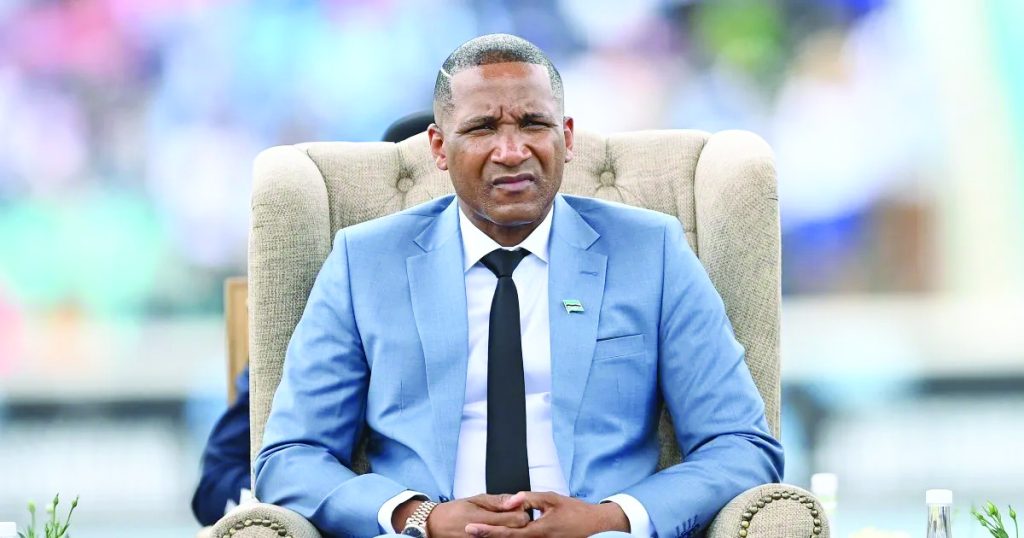As power outages disrupt daily life and business operations across Botswana, present and past political leaders have distanced themselves from the nation’s ongoing power crisis.
The administration of president Duma Boko attributes the crisis to past government failures, former president Ian Khama has shifted the responsibility to Botswana Power Corporation’s (BPC) governing board, while former president Mokgweetsi Masisi’s energy minister, Lefoko Moagi, insists that their administration had the situation under control.
In the melee, industry experts are warning that the power crisis is not merely a result of failed energy reforms, outdated or defective infrastructure, or the slow transition to sustainable energy solutions but is a stark consequence of inadequate political will.
MORUPULE POWER PLANT
Botswana’s energy woes trace back to the Morupule power plant, parts of which, due to substandard construction, has struggled to meet international energy standards since its launch in 2013. Frequent boiler tube failures have plagued the facility, and the nation is currently relying on a single underperforming unit.
According to government statements, the crisis has been exacerbated by a lack of a clear mitigation plan and delays in remedial work.
While the administration of president Boko blames past governments for failing to invest in power generation and fixing their blunders, critics argue that shifting blame will not generate electricity.
Khama ruled Botswana from 2008, handing over to Masisi in 2018 who led the country until 2024 before passing the baton to Boko.
Addressing the nation recently, Boko emphasised that his government inherited a costly mess and is now grappling with the consequences. His government has promised to do all it can to restore power.
SUBSTANTIAL CAPITAL OUTLAY
Briefing parliament this week shortly before departing for emergency power supply negotiations in South Africa, the minister of minerals and energy, Bogolo Kenewendo, revealed that resolving the crisis will require substantial capital, further straining Botswana’s overstretched fiscus.
According to the minister, Morupule Coal Mine, which is a key creditor, is severely affected by BPC’s financial struggles, risking coal supply and electricity production at Morupule A and B power plants.
As at 31 January, BPC’s outstanding debts stood at P2.6 billion, with unpaid power import bills threatening supply cuts and nationwide blackouts.
The power utility’s financial crisis is worsened by a mismatch between revenue and expenses, with BPC earning P430 million monthly but facing expenditure of P650 million.

LOANS TO SERVICE
“To add to the cash challenges, the corporation must also service a loan from the Industrial and Commercial Bank of China (ICBC), which requires US$56 million (approximately P700 million) per year for repayments, and another loan from the Botswana Public Officers Pension Fund (BPOPF), where annual interest payments amount to P140 million,” Kenewendo stated.
She added that tariff subsidies fund the ICBC loan while revenue collections service the BPOPF loan interest.
Asked about allegations that his administration contributed to the power crisis, Khama denied responsibility, stating: “BPC has a governing board responsible for overseeing its operations on behalf of the government. The decision to procure from suppliers was made by the board, just as all parastatals operate under their respective boards.”
Contacted for comment, Masisi directed inquiries to his former energy minister, Lefoko Moagi, who maintained that recent interventions were initiated under their administration.
“We started by fixing Morupule A, which was handed back in 2020 and has been operational since then,” he says. “We also launched remediation works on Morupule B, though challenges persist.
“From 2022, we produced enough power to sell to the region but South Africa declined to purchase.
We expedited power generation projects in Mmadinare and Jwaneng, increasing capacity from 50MW to 100MW, and Jindal from 300MW to 600MW. We also fast-tracked projects in Maun and Letlhakane.”
INDEPENDENT POWER PRODUCERS
Moagi adds that Botswana negotiated tariffs for independent power producers to ensure payments could be made once power became available.
“Despite aspirations to be a regional energy exporter, we avoided excessive power generation to prevent surplus issues,” he says.
Moagi outlined long-term solutions to ensure energy security and stability under the Masisi administration.
These include revising the integrated resource plan to upgrade and fast-track power generation projects, including Jindal (600MW), Mmadinare and Jwaneng (100MW each), and small-scale off-grid solutions.
Additional projects include solar and wind hybrid systems in Maun and Letlhakane, and coal-bed methane initiatives involving Tlou Energy and Botala. He also highlights efforts to expand electricity access.
“We provided free electricity connections to households and were on the verge of extending this to small businesses,” he notes. “Once connected, they would contribute to BPC’s revenue through consumption charges, aiding operations and maintenance.”
Moagi urges the current government to continue implementing both generation and transmission projects already awarded, stressing that infrastructure is crucial for evacuating generated power.
He also encourages continued negotiations with regional partners to secure export agreements before new power plants come online.
While the blame game rages on, ordinary citizens and businesses continue to suffer the consequences of prolonged power outages.
Analysts say without decisive action and political consensus, Botswana’s energy crisis will persist, plunging the country further into economic uncertainty.
Stay informed with The Namibian – your source for credible journalism. Get in-depth reporting and opinions for
only N$85 a month. Invest in journalism, invest in democracy –
Subscribe Now!










